Mushtaq Ul Haq Ahmad Sikander
Peace in Kashmir has been a casualty since Independence of India and creation of Pakistan. The absence of Peace in Kashmir is a legacy of the partition of the Indian sub-continent. India and Pakistan both put forward claims and counter claims regarding Kashmir. India proclaims it to be an Atoot Ang (Integral part), crown of its topographical and geographical unity, and a litmus test of its Secular character. Pakistan claims it to be its Shahrag (Jugular vein), constituent of ‘K’ in its entirety Pakistan (land of pure) and affirmation and vanguard of its ideological roots. Kashmir and its inhabitants till recently were not even a party to the dispute. Kashmir was debated as a bilateral issue between the countries of India and Pakistan, which is to be solved bilaterally without any external intervention. The sacrifices offered by the masses, coerced both to accept the inhabitants of Kashmir as a party to the dispute and inevitable for a concrete Peace Process in Kashmir.
Peace has different connotations for various stake holders in Kashmir. For mainstream Political parties autonomy, self rule, internal freedom remain the destined goals and catch words, and they wish to attain the same while remaining in the Indian Union and under the ambit of Indian Constitution. Anything outside these boundaries is unacceptable for them. These demands if granted by the centre will usher Peace in Kashmir, according to them.
The Peace for separatists has meant resolution of Kashmir outside the ambit of Indian Constitution and Statehood. They have tried and displayed their willingness many a times to enter into Dialogue with India, but Indian State doesn’t pay heed to them, when they are in control of things and affairs of Kashmir. India has engaged with them, sometimes openly and at other times clandestinely but India hasn’t budged or depicted any flexibility in its attitude via Kashmir. Witnessing the futility of Peace Process rounds and Dialogues, no separatist leader dares to enter into Dialogue with India now, for the ire they have to face from the people and other separatists, marring their political stance as dubious and suspicious. The rigidity of Indian State has brought the Peace Process to a dead end. Till date more than hundred and fifty rounds of talks have been held between India, Pakistan and Kashmiris, with no concrete results, and now the word Dialogue and Peace Process have become the most hated words in the Kashmiri lexicon.
Why Peace keeps Evading Kashmir?
Scores of diverse, different and divergent reasons, ranging from Social, Political, Economic and Cultural aspects, belonging to contrasting ideologies , world views and goals located in varied set ups, planes, analogies and people are responsible for the failure of Peace Process and enduring Peace in Kashmir. A few can be recounted as
- Incommensurable Parts: The State of Jammu & Kashmir consists of three parts, and if considered before 1947, the parts lying with Pakistan also constitute Kashmir, along with Aksai Chin which Pakistan offered to China. All these parts are at loggerheads with one another, and they have different political aspirations. “Neither the Buddhists of Ladakh nor the Hindus of Jammu share the objectives of the Muslim Kashmiris of the valley. Their main concern has been to press for autonomy against the dominance from the more populous valley. ‘Both feel the fruits of development have not reached them; most of the money has been spent on the valley’, said Ram Mohan Rao, adviser to the Government of Jammu and Kashmir in 1995. ‘A problem in our country is that we have a blanket which is too short. If it covers the head, then it is not able to cover the feet’. Indian officials point out that there are eight linguistic and cultural districts in the Indian administered State of J&K, and Kashmiri is only one of them. The implication is that although in the valley Kashmiris may be numerically superior, their objectives cannot determine the future of the entire State”1
These different aspirations and goals have been expressed time and again by the different regions. Each feels that they have been sidelined at the cost of appeasing others. The Jammu region wants full integration with India; hence they launched the campaign of ek desh mey dou vidhan dou pardhan dou nishan nahi chalengey nahi chalengey (In one country two Constitutions, Two Prime Ministers, and Two Flags are not acceptable)
Peace has different connotations for various stake holders in Kashmir. For mainstream Political parties autonomy, self rule, internal freedom remain the destined goals and catch words, and they wish to attain the same while remaining in the Indian Union and under the ambit of Indian Constitution.
Ladakh wants to be granted Union Territory Status and be ruled directly from Delhi. No single unifying force runs throughout the State, hence disunity and opposition among the parts is a norm. The need is to narrow down the grievances and intra alienation among these parts.
- Different People: All the three parts of Indian Kashmir consist of different linguistic groups, varied ethnicities and faiths. Kashmir is Muslim majority; Jammu is Hindu majority and Ladakh a Buddhist majority2. All the people of these regions have different aspirations, hence their interests clash frequently, as can be witnessed in the 2008 Land Row Agitation between Jammu & Kashmir and Ladakh Buddhist Association (LBA) agitation which were both highly communal and polarizing agitations.3 It must be remembered that despite suffering immensely, Kashmiri Muslims haven’t attained communal overtures, mindset and outlook. The absence of a single common uniting thread and force among the people is the reason for Intra State resentment and violence.
- Suspicious Relationship: The seeds of suspicion were sown soon after the illegal and unconstitutional deposition of popular leader of Kashmir Sheikh Muhammad Abdullah in 1953, by India. This suspicion grew stronger with each passing day. Now is the time to narrow down the same, for a Permanent Peace.
- Democracy can’t be Afforded: India and even J.L Nehru many a time’s claimed4 and upheld that Democracy can’t be afforded in Kashmir. Hence all the elections which were held in Kashmir were a Centre managed affair and after armed insurgency army managed affair, in which only those would be elected whom centre desired and who could use power to woo voters and intimidate opposition5. The trust in free and fair elections among masses needs to be restored again.
- Sidelining Real Issues: Indian Politicians have always sidelined the real issue of Self-Determination, and addressed issues of governance and local concern at the cost of right of Self Determination. It has adverse impact on Peace in Kashmir.
- Callous Attitude: The Indian State has never depicted serious attitude towards Peace Process and Resolution of Kashmir. The Peace Process is only initiated by India in the aftermath of crises, agitations or protest movements in Kashmir. The efforts for establishing Peace must not be reactive.
- Corrupt Political Power: The Indian Politicians have always encouraged and patronized those Kashmiris politicians who would toe their official line on Kashmir, turning a blind eye on their evil deeds and patronizing them at the cost of popular genuine leaders. It has a severe impact of Peace.
- Lack of Political Will: The fragility of Political Will in both Indian and Pakistan for resolution of Kashmir Issue, has also contributed to the failure of enduring peace.
- Rigid Nature of Indian policy: The Indian leaders and State don’t want to budge an inch from Status Quo, which leads to a dead lock in Peace process, resulting in scattered Peace.
- Presence of Two Separate tussles: “The current difficulty in resolving the conflict is the presence of two separate tussles with a large dysfunctional interface. One is the Power-political, territorial and ideological competition between India and Pakistan. The other is the one of the relationship between Delhi & J&K centered on the extent of autonomy that the State should enjoy. India, by far the strongest party has adopted a hard line in both disputes”6.
- Frankenstein Fear: “Pakistan fears that negotiations with India can only lead down a blind alley resulting in the erosion of its leverage. India fears that a Peace Dialogue could get out of control if Pakistan and the Kashmiri discontented join hands”7.
- Military Response: The military response to every Political Problem, issue, agitation and protest is adding insult to injury, hence aggravating the situation instead of dousing the fire.
- Clash of Identities: The Indian and Kashmiri Identity has never been reconciled, hence they clash frequently. In this clash Peace becomes a casualty.
- Non State Actors: The Non State actors have many times hampered the prospects of Peace Process whether be it in the aftermath of Lahore Summit, Indian Parliament attacks or 26/11 attacks on Mumbai. Some invisible but potent Non State actors don’t want Peace to prevail between the two countries and Kashmir Issue be solved amicably.
- Fractured Civil Society: The Civil Society in Kashmir is also divided in Pro-Freedom and Anti Freedom blocs; hence they fail to play substantial role in establishing Peace.
- Justice Delayed: The impunity with which security forces are killing innocents and civilians and going scot free is having an adverse effect on Peace Process. Till culprits aren’t brought to book and victims administered Justice, Peace will remain but an illusion.
- Draconian Acts: The existence of three Draconian laws, Disturbed Areas Act (DAA), Armed Forces Special Powers Act (AFSPA) and Public Safety Act (PSA), is resulting in gross human rights violations of civilians and the guilty aren’t being punished.The “Armed Forces Special Powers Act”, enables certain special wide powers to be conferred upon members of the armed forces in the disturbed areas of the State of Jammu and Kashmir. Any officer in the armed forces may, in a disturbed area, as he may consider necessary, fire upon or otherwise use force, even to the causing of death, against any person who is acting in contravention of any law or order; prohibit the assembly of five or more persons; prohibit carrying of weapons; arrest, without warrant. PSA grants the right to security agencies to arrest and incarcerate anybody without a judicial trail for two years8.
- Unmarked Graves: Numerous unmarked and unknown graves have been discovered in different parts of Kashmir9. It has yet to be determined who the victims are, most of whom were handed over by security personnel to the locals for burial. With more than ten thousand alleged disappearances in Kashmir, it needs a fact finding commission which can divulge the details of the victims. The Chief Minister, Omar Abdullah has promised a Truth and Reconciliation Commission (TRC) on the pattern of South African TRC, but the victims are demanding arrest of the security and army personnel who took away their men and allegedly disappeared them in custody. Also TRC is a post conflict phenomenon, while the conflict in Kashmir is still raging.
- Women Unrepresented: The women now are regaining their public space back once again, and are even on the forefront of the protests that have rocked Kashmir Valley for last three consecutive years since 2008. Women are also active in the Peace and Reconciliation efforts too, though these initiatives are still an elite venture10. In the Peace Process Dialogues no women representative of Kashmir has been included. It is still a men’s affair. This impacts Peace in Kashmir.
- Unrealistic Demands: Many times the Indian State has put forward unrealistic demands before the separatists and tried to dwarf their stature by challenging them to prove their worth in elections, which they believe are State managed shows in which participation would dilute their political stance. It must be remembered that in Kashmir, separatist leaders are still revered and followed by the masses, which can be witnessed in the honour their strike calls evoke from masses.
- Militant Voices: Though the militancy has declined in Kashmir, but there still remain some militants who have the power to strike, hence they must not be neglected in any Peace Process.
- Dilemma with State: There are scores of separatist leaders with dozens of organizations, hence the State also faces the challenge of whom to talk and whom to neglect. It is a tuff decision of choosing between devil and deep sea. This hampers Peace, because if state establishes Peace with one party, the other will resist, resent and oppose it.
- Boycott by Separatists: The boycott of Peace efforts offered by State to Separatists has also hampered the chances of a fruitful Peace.
- Adverse Effect of Bilateral Peace Process: The Kashmiris are deeply hurt and resentful when they are not included in Peace Talks and Dialogues. This has led to fractured Peace efforts. “Kashmiris have been struggling for their inalienable and immutable right to self determination since 1947- the year when India invaded Kashmir at the behest of Maharaja Hari Singh, the autocrat who had already victimized Kashmiris in perfect dictatorial way. India-while using all the fascistic, chauvinistic, imperialistic and Procrustean modes of repression and oppression- tried to break the will of Kashmiris to resist. Six lakh freedom activists were put to the sword; thousands of freedom zealots including the senior ailing leaders like Ashraf Sehrai and Aasiya Andrabi Saheba have been languishing in Indian concentration camps for years on end. And now India wants to fob off crumbs (autonomy and onions of Pakistan procured through LOC barter) on to kashmiris. Pleasantries of the Foreign Ministers meeting held in Delhi on July 27, 2011 could not anoint and salve the wounds of Kashmiris; and hackneyed and platitudinous diplomatic jargon could not alleviate, palliate and mitigate the sufferings of kashmiris brutalized, vandalized, mortified and terrorized by stratocracy of India”11
- Crises of Implementation: The non implementation of recommendations of Peace Process dialogue outcomes, have led them face a severe crises, where none wants to engage in Peace Process, as it has become a hated word in the lexicon of Kashmiris.
These all bottlenecks and issues pointed above need to be overcome and delved with strong political acumen only then enduring Peace can be established in Kashmir.
Conclusion
Peace Process in Kashmir has to be sustained if any Peaceful Resolution of the Kashmir Problem is to be sought out. It needs to be remembered that Kashmir is a Political Problem, and not an Internal Problem of India, which it can solve on its own terms. Its more than six decades of engagement with the Kashmir Problem has depicted the shortcomings of this approach. Kashmir Issue is an identity problem, which has not been integrated with the mainstream Indian Identity. The identity ruckus is creating the havoc, and the broken promises adding fuel to the fire and the dream of an Independent Nationhood being a hope which drives the resistance in Kashmir. The previous attempts of assimilating and integrating the Kashmiri identity with Indian one have failed, and in future too they are bound to fail.
Any permanent solution to this issue will include compromise by all the parties of the dispute. The unrelenting posture depicted by all the parties, is giving birth to vicious circle of violence. Till compromise on certain points and fields isn’t made, Kashmir will continue to burn time and again. The Negative Peace can obviously be maintained, which can be well termed as Peace of Graveyard but Positive and Permanent Peace will continue to evade Kashmir.
The youth who are humiliated daily at the hands of army and Police feel disgusted with the State of affairs and being driven to the wall where they find no direction to give vent to their resentment and anger which could be sublimated in something positive; resort to violence and fall like ripe fruit in the lap of religious fanatics or politicians who use them as Cannon Fodder. The intolerance of State and government regarding dissent is further adding fuel to the fury.
The Resolution of Kashmir is essential for Peace in whole South Asia. No Permanent Peace will ever prevail in South Asia till Kashmir Issue isn’t resolved. The present Indian State repression is driving the youth to the wall and chances are that armed insurgency may once again take Kashmir in its grip, whose bitter results are still being redeemed in the form of widows, half widows, orphans, injured, physically challenged, molested and bruised souls.
Hence for any substantial Peace, Dialogue must be initiated, welcomed and the outcome implemented, while taking the masses in confidence too. Any solution which will be inimical to majority of Kashmiris can never be a successful solution to the vexed problem of Kashmir.
Overall it is essential to facilitate dialogue at the grassroot levels among different communities so that they can understand each other, which will ultimately pave way for Peace and Reconciliation. This dialogue must be inter and intra people.
I would like to end on a Positive note as observed by Mahatma Gandhi on December 29, 1947 which still remains to be realized and fulfilled. He said “Will not India and Pakistan come together and settle the issue with the help of impartial Indians? Is there no one here who is impartial? I am sure that we have not become bankrupt to that extent. Today Hindusim and Islam are being tested in Kashmir. If the right thing is done and right direction given to the process the chief actors will win fame. It is my prayer that in the present darkness in the country Kashmir may become the star that provides light”.12
The Kashmir as a star has yet to illuminate and when it will only Time will Tell.


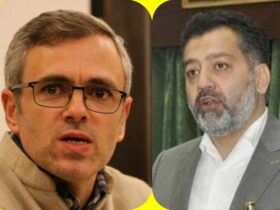
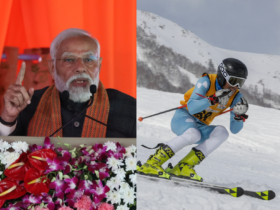

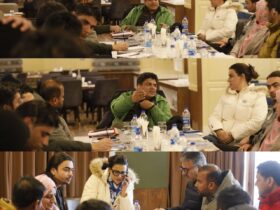

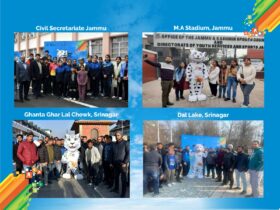
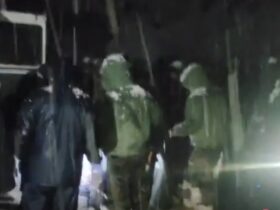


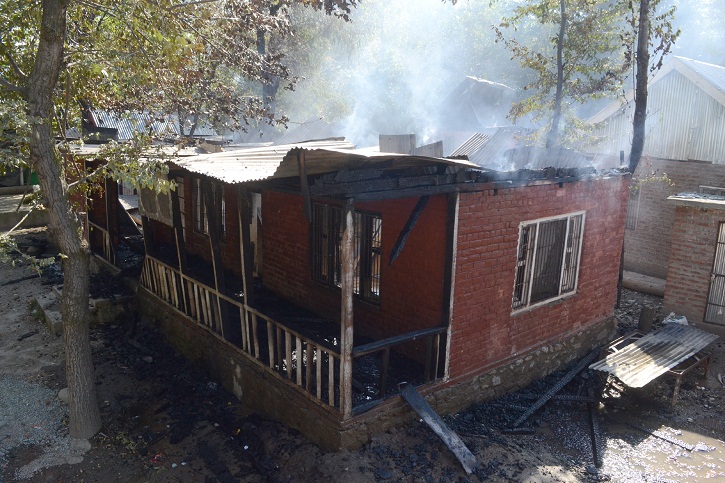
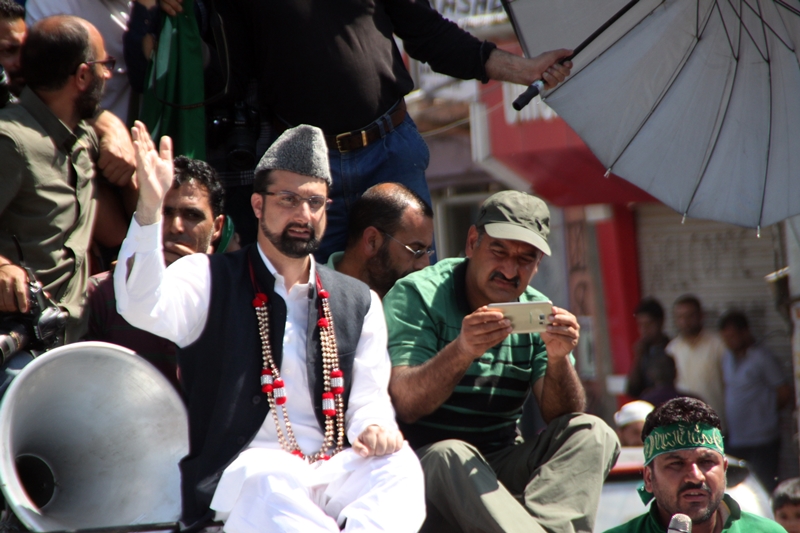
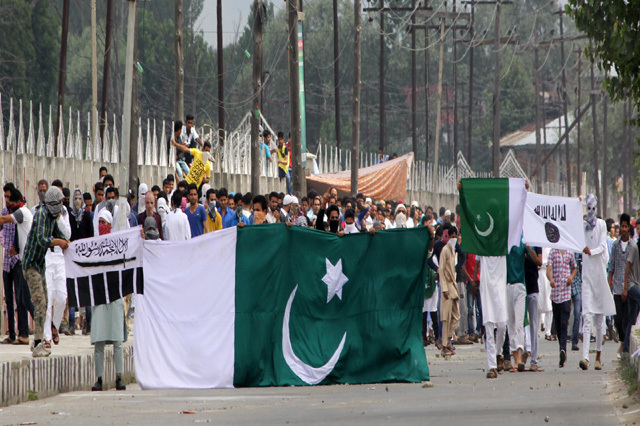
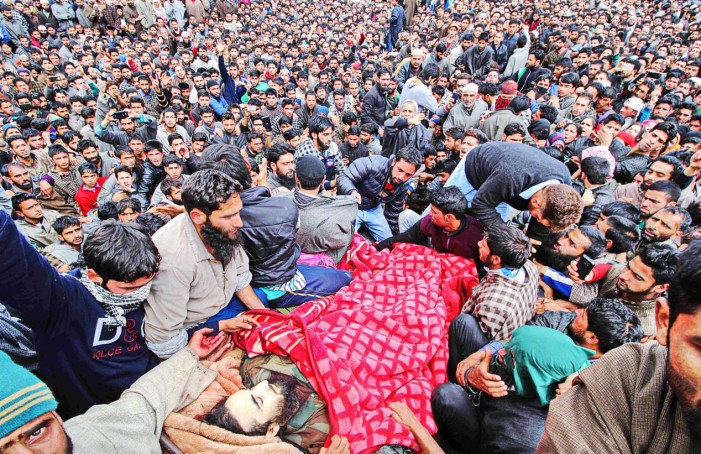
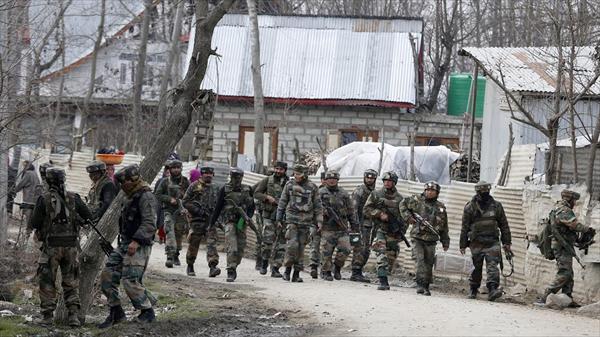
Leave a Reply